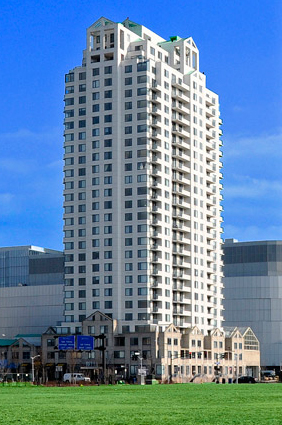AC Gambling Revenue up 10%
The resort’s casino industry produced nearly 10 percent more gambling revenue in September 2015 than in September 2014, state casino regulators announced Thursday, stoking speculation that a stabilization is afoot in a town that’s been hammered by competing casinos in Pennsylvania and Maryland.
The industry reported $230.1 million in September 2015 gambling revenue, up 9.9 percent from last year.
That comparison includes revenue from two casino-hotels that closed last September — Revel Casino Hotel on Sept. 2 and Trump Plaza Hotel and Casino on Sept. 16.
When excluding those properties to assess current operators only, the picture was even rosier, with the remaining operators producing 10.8 percent more September revenue than last year, and six of the city’s eight casinos reporting gains, the state Division of Gaming Enforcement said.
The September numbers were positively affected by the timing of Labor Day weekend, a traditionally busy period in Atlantic City that fell entirely in September this year, as opposed to last year, when most of it was in August.
Combining revenue figures from both months shows that the current operators saw revenue increase 1.8 percent in August and September compared to the same months last year.
When factoring in closed casinos, though, the market was down nearly 5 percent during the two-month period.
“The calendar probably triggers a few percentage points of the increase,” but “there’s still kind of an uplift beyond the calendar,” said Alex Bumazhny, a casino analyst at Fitch Ratings, who said a favorable table-games hold percentage — the rate at which casinos keep gamblers’ money, which has a lot to do with luck — likely contributed to the September gains as well.
“It does look like the market is recovering,” he said. “2014 was pretty tough.”
And September 2014, when Revel and Trump Plaza closed, was arguably the toughest month of the toughest year in the history of Atlantic City, which began last year with 12 casinos and ended it with eight.
Since then, a duality has emerged in the market: Total industry revenue keeps sliding, and in 2015 will likely fall for the ninth straight year, but the remaining operators’ revenue is on the upswing, as they benefit from a market that’s less crowded with competition and absorb gamblers who patronized the casinos that closed.
The Atlantic City casino industry’s revenue has contracted by 8.4 percent, to $1.96 billion, in the first nine months of 2015 compared to the same stretch last year. The city’s current operators, though, have seen revenue increase 4.1 percent.
In addition to reporting total revenue, regulators have used the “current operators” subset as an alternate baseline that homes in on the health of the remaining Atlantic City outfits. Starting in October, the two-pronged approach will likely be abandoned, because by October 2014, Atlantic City had completed its mutation into an eight-casino town.
Borgata Hotel Casino & Spa saw the greatest year-over–year September 2015 revenue increase, reporting a $7.8 million one-month gain. Next was Caesars Atlantic City, with a $4.9 million increase, then Resorts Casino Hotel, which added $3.6 million.
For Resorts, that was a 31.8 percent increase from last year — the highest September growth rate reported Thursday. Golden Nugget Atlantic City, which saw revenue increase 20.9 percent, to $19.6 million, had the second-highest rate.
Bally’s Atlantic City and Trump Taj Mahal Casino Resort reported September revenue declines of 4.2 percent and 4.6 percent, respectively.
The industry reported $230.1 million in September 2015 gambling revenue, up 9.9 percent from last year.
That comparison includes revenue from two casino-hotels that closed last September — Revel Casino Hotel on Sept. 2 and Trump Plaza Hotel and Casino on Sept. 16.
When excluding those properties to assess current operators only, the picture was even rosier, with the remaining operators producing 10.8 percent more September revenue than last year, and six of the city’s eight casinos reporting gains, the state Division of Gaming Enforcement said.
The September numbers were positively affected by the timing of Labor Day weekend, a traditionally busy period in Atlantic City that fell entirely in September this year, as opposed to last year, when most of it was in August.
Combining revenue figures from both months shows that the current operators saw revenue increase 1.8 percent in August and September compared to the same months last year.
When factoring in closed casinos, though, the market was down nearly 5 percent during the two-month period.
“The calendar probably triggers a few percentage points of the increase,” but “there’s still kind of an uplift beyond the calendar,” said Alex Bumazhny, a casino analyst at Fitch Ratings, who said a favorable table-games hold percentage — the rate at which casinos keep gamblers’ money, which has a lot to do with luck — likely contributed to the September gains as well.
“It does look like the market is recovering,” he said. “2014 was pretty tough.”
And September 2014, when Revel and Trump Plaza closed, was arguably the toughest month of the toughest year in the history of Atlantic City, which began last year

